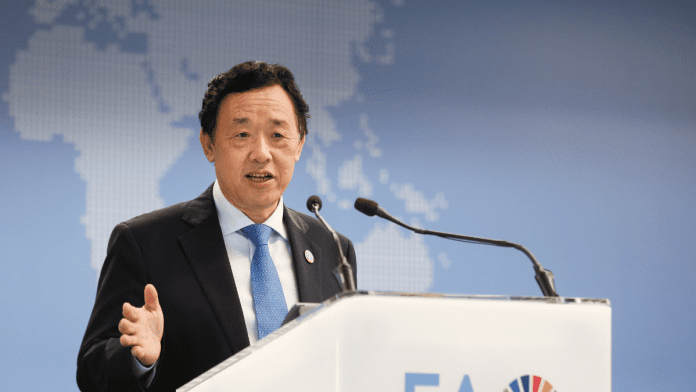News in brief:
– FAO Director-General Qu Dongyu urges G20 action on food security and climate, highlighting the dire global hunger situation affecting 735 million people in 2022.
– Emphasising local impact, Qu calls for innovative solutions and significant investments of up to $4 trillion to empower small-scale farmers and transform agrifood systems.
In a compelling address at a high-level event organised by Brazil, the Food and Agriculture organization (FAO) Director-General, Qu Dongyu, underscored the critical need for urgent action on food security and climate in 2024. The event, hosted at the Brazilian Embassy in Rome, emphasised the organisation’s commitment to supporting the G20 Presidency held by Brazil.
Qu began by highlighting the stark reality of global hunger, with 735 million people enduring chronic hunger in 2022. He emphasised the intricate links between conflicts, climate extremes, and economic crises, underscoring their disproportionate impact on the food security and nutrition of the poor.

G20 prioritisation and alliance against hunger
The high-level panel focused on the G7 and G20 presidencies, particularly Italy and Brazil, and the recently announced G20 Global Alliance Against Hunger and Poverty, set to launch in November. Qu praised the effective collaboration with Brazil and reiterated FAO’s commitment to providing technical support for a successful G20 under Brazil’s leadership.
He drew attention to the alarming connection between inequality and various forms of malnutrition, emphasising the need for expanded social protection programs. While acknowledging Brazil’s success with conditional cash transfers, he urged innovative approaches in response to climate shocks.
Looking towards long-term solutions, Qu highlighted the necessity for investments in infrastructure, digitalisation, innovation, and technologies. He stressed the importance of human capital through improved education and health services. To transform global agrifood systems and achieve sustainable development goals, Qu estimated a required investment of $4 trillion by 2030 in low- and middle-income countries.
Achieving SDG2 and climate targets
Qu also emphasised the need for increased investments in a diverse and productive agricultural sector promoting nutritious foods. He outlined that the current food system is responsible for 30% of greenhouse gas emissions and transforming it can enhance efficiency, inclusivity, and resilience.
Qu cited the recently launched Global Roadmap for Achieving SDG2 without breaching the 1.5C threshold as a concrete package of solutions. This innovative plan aligns to achieve Zero Hunger while accelerating climate actions, potentially acting as a catalyst for increased financing.



